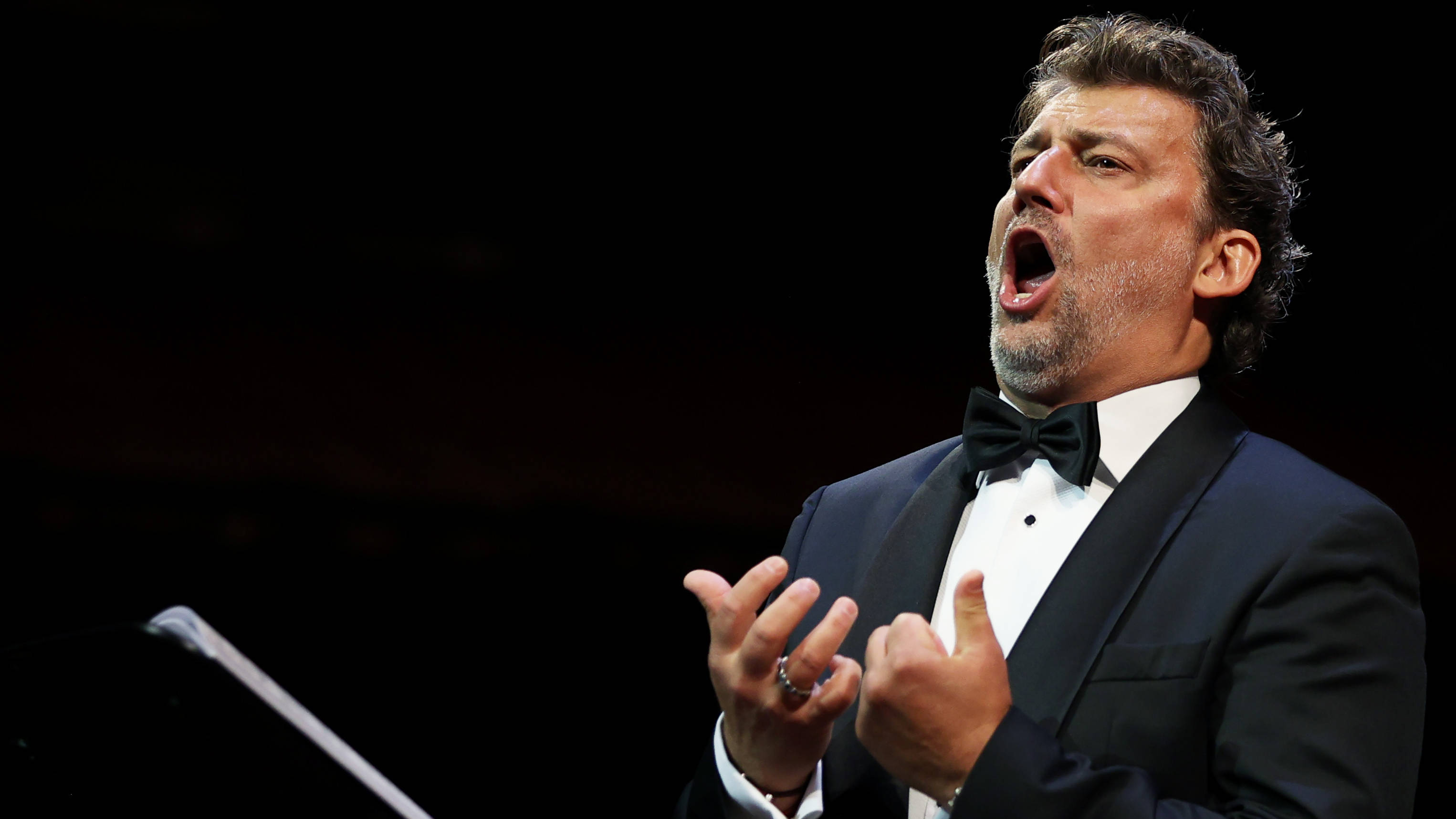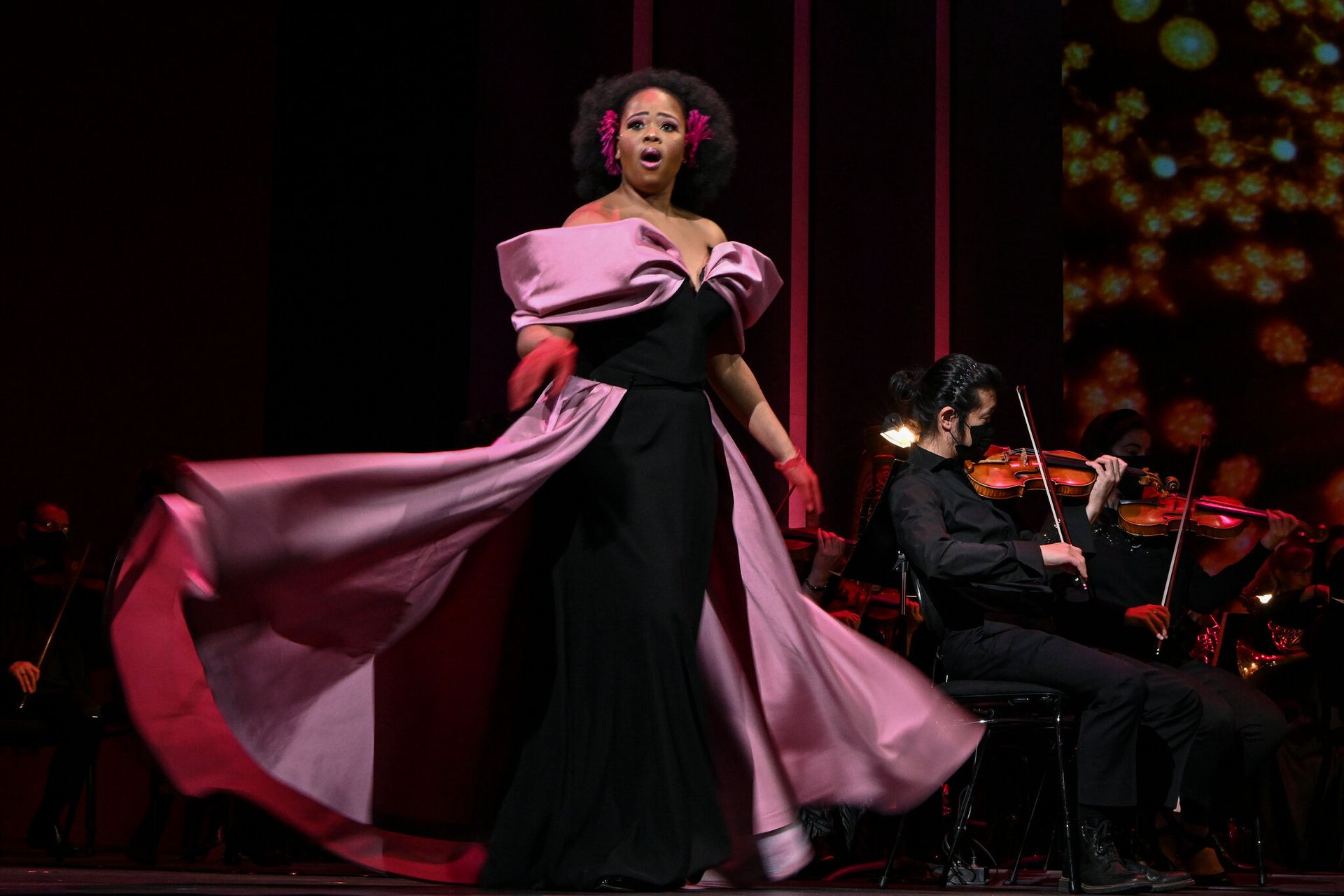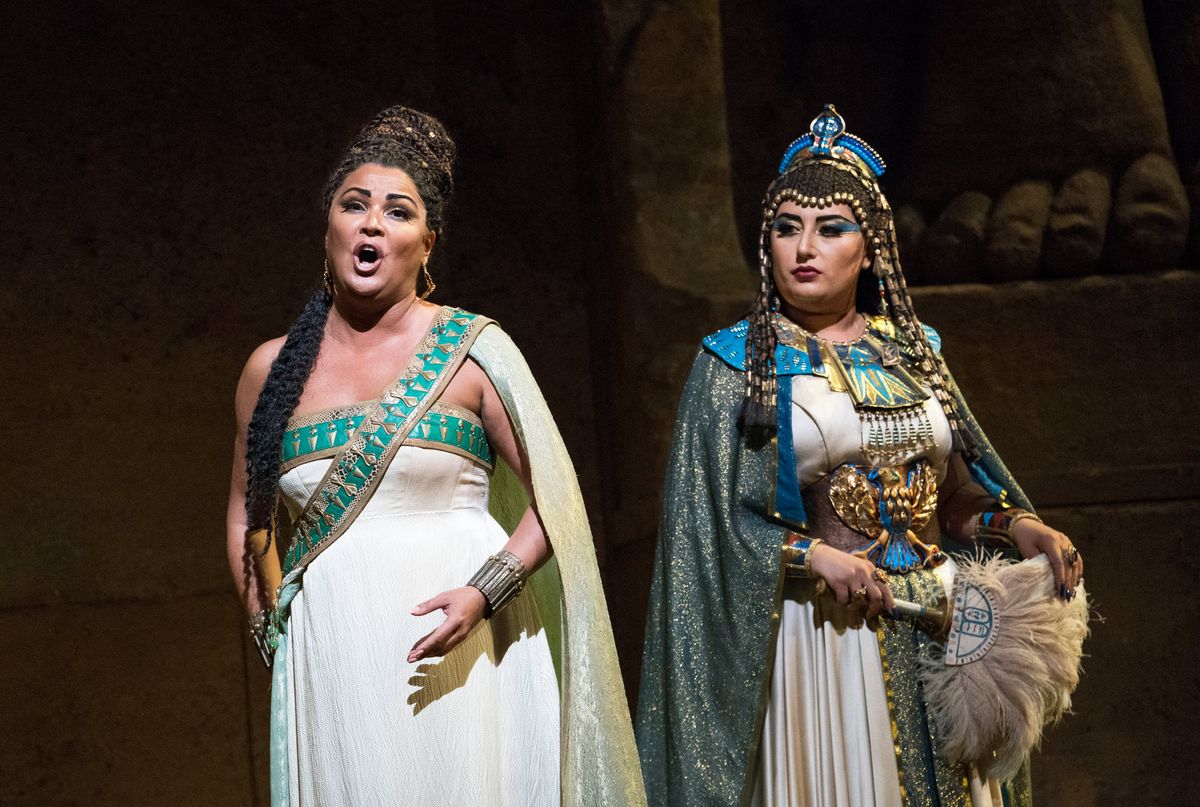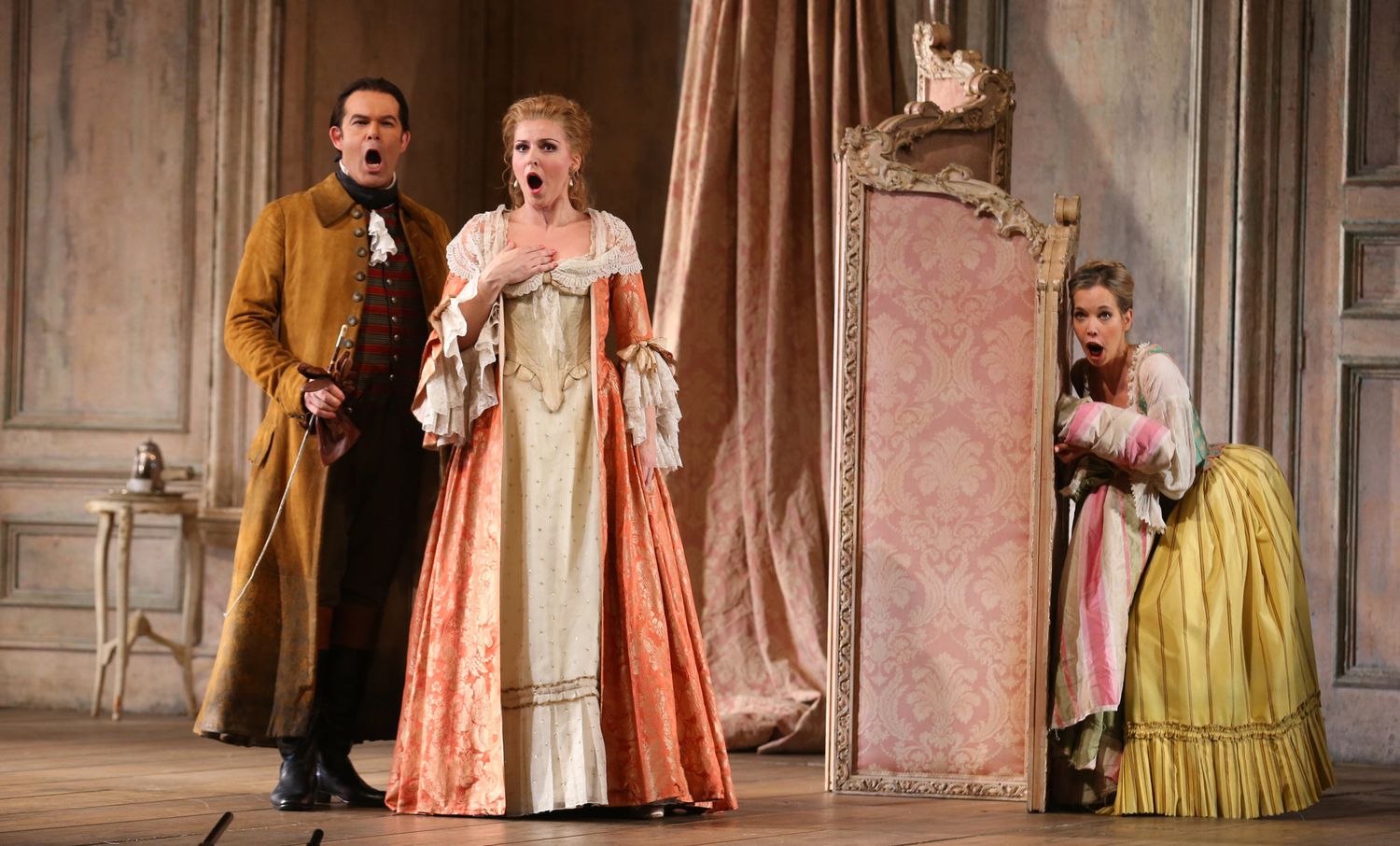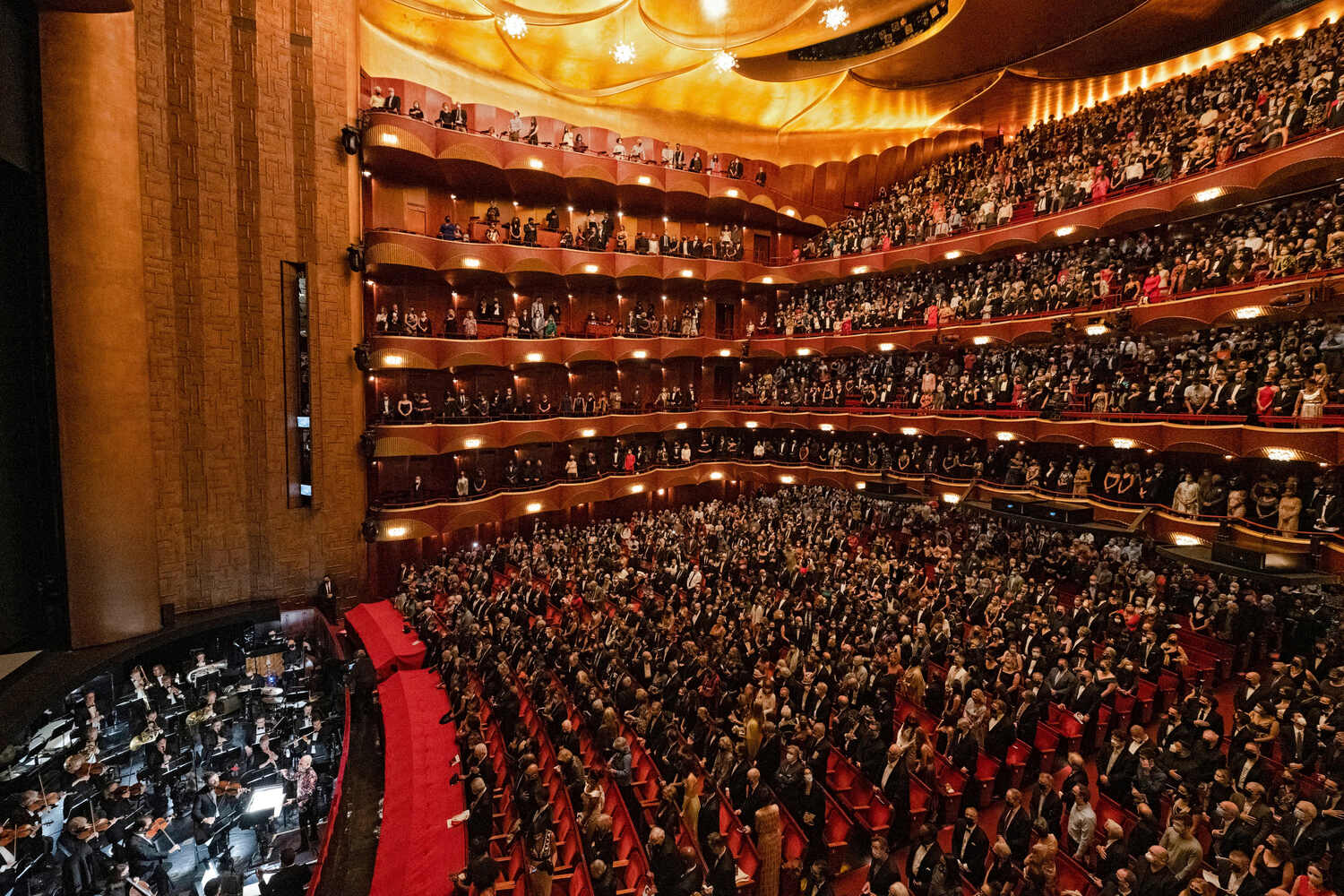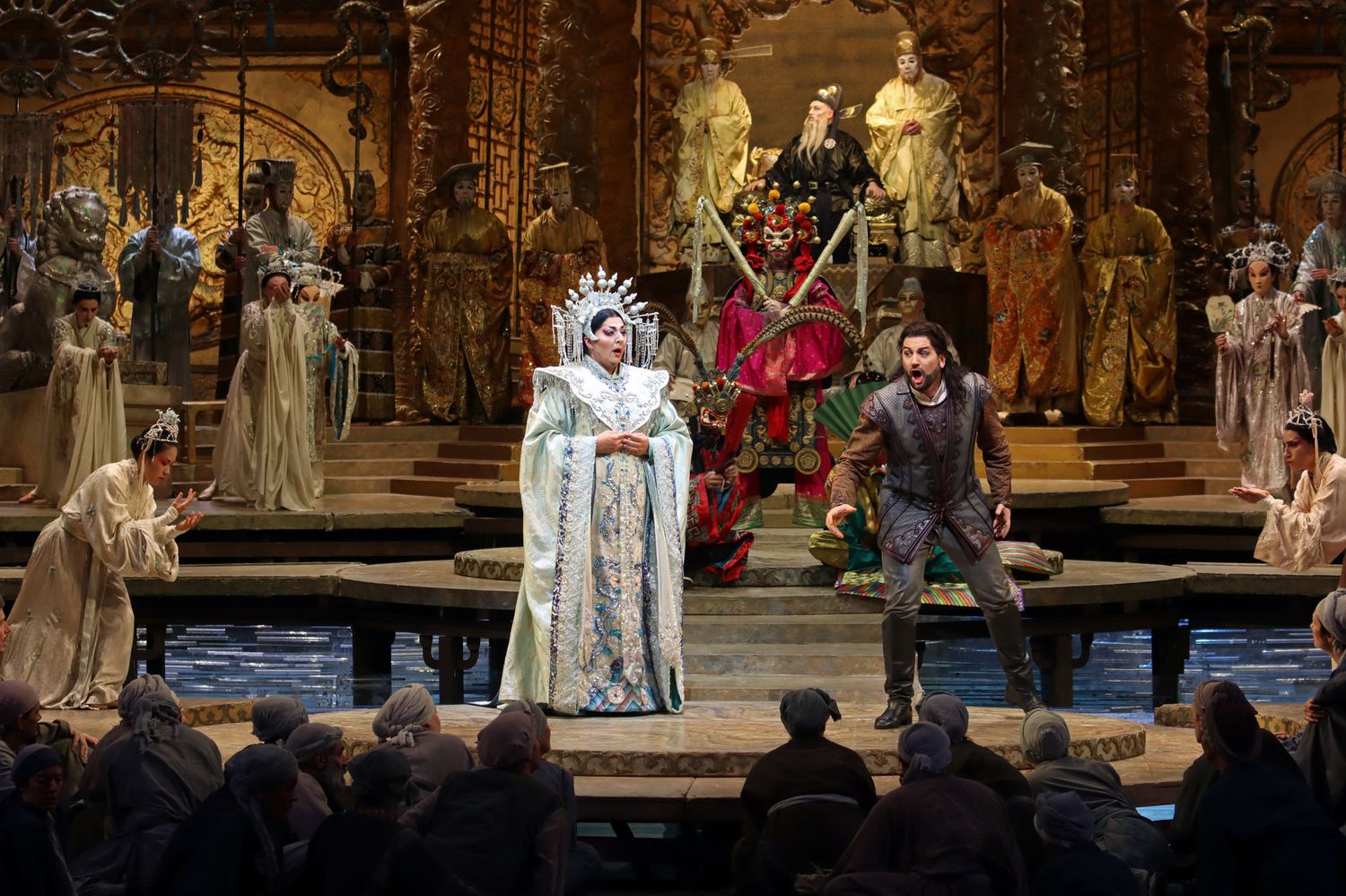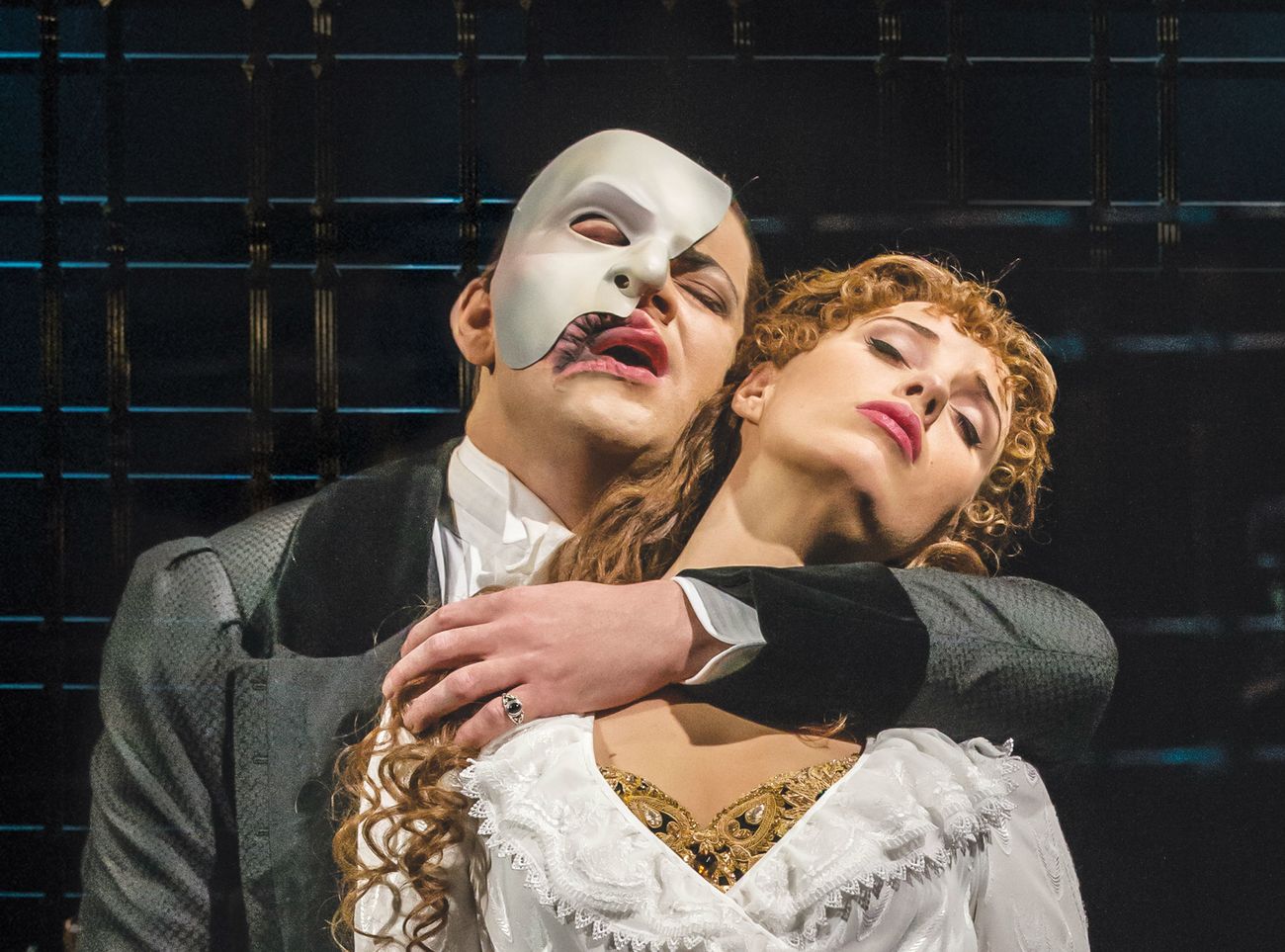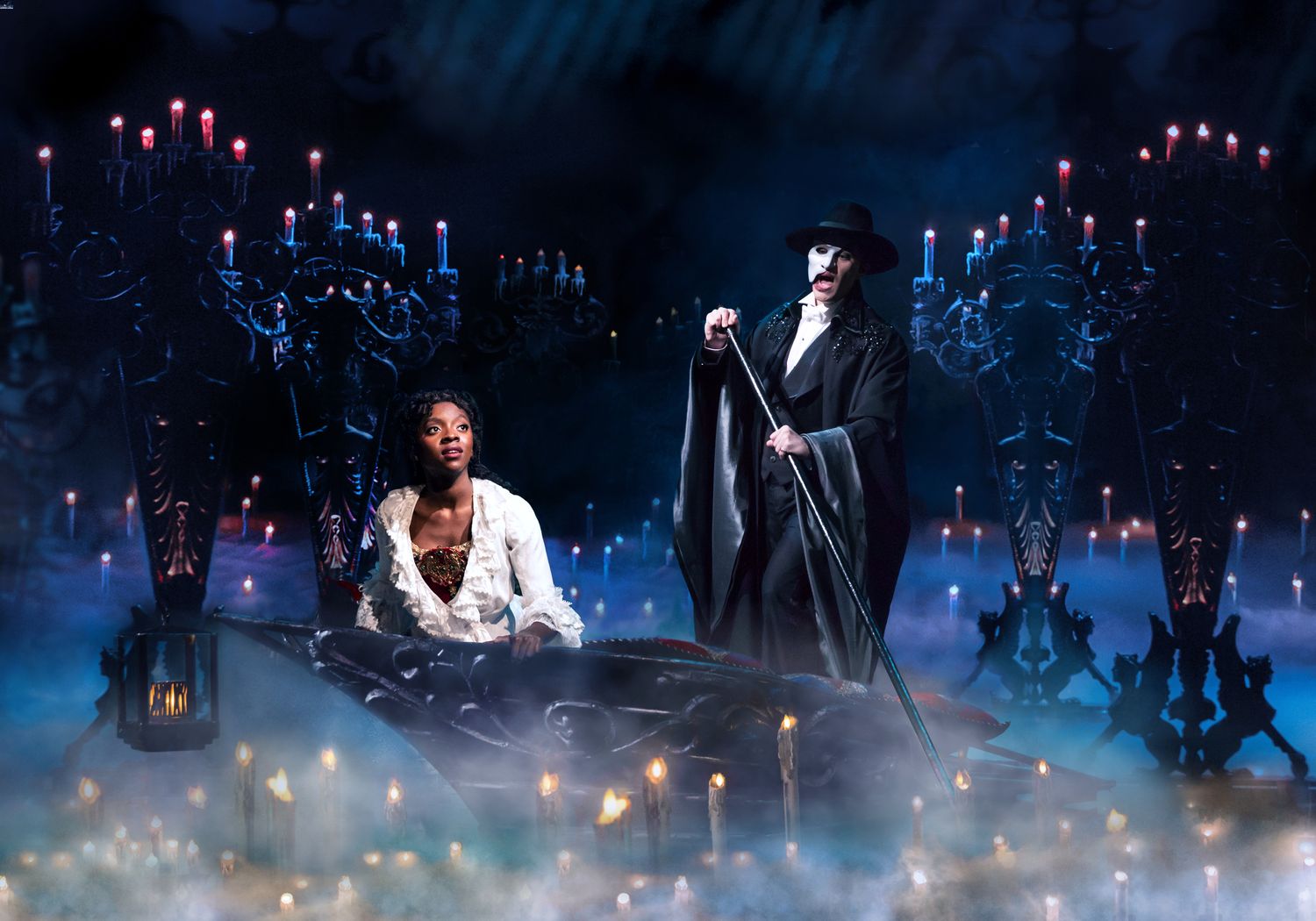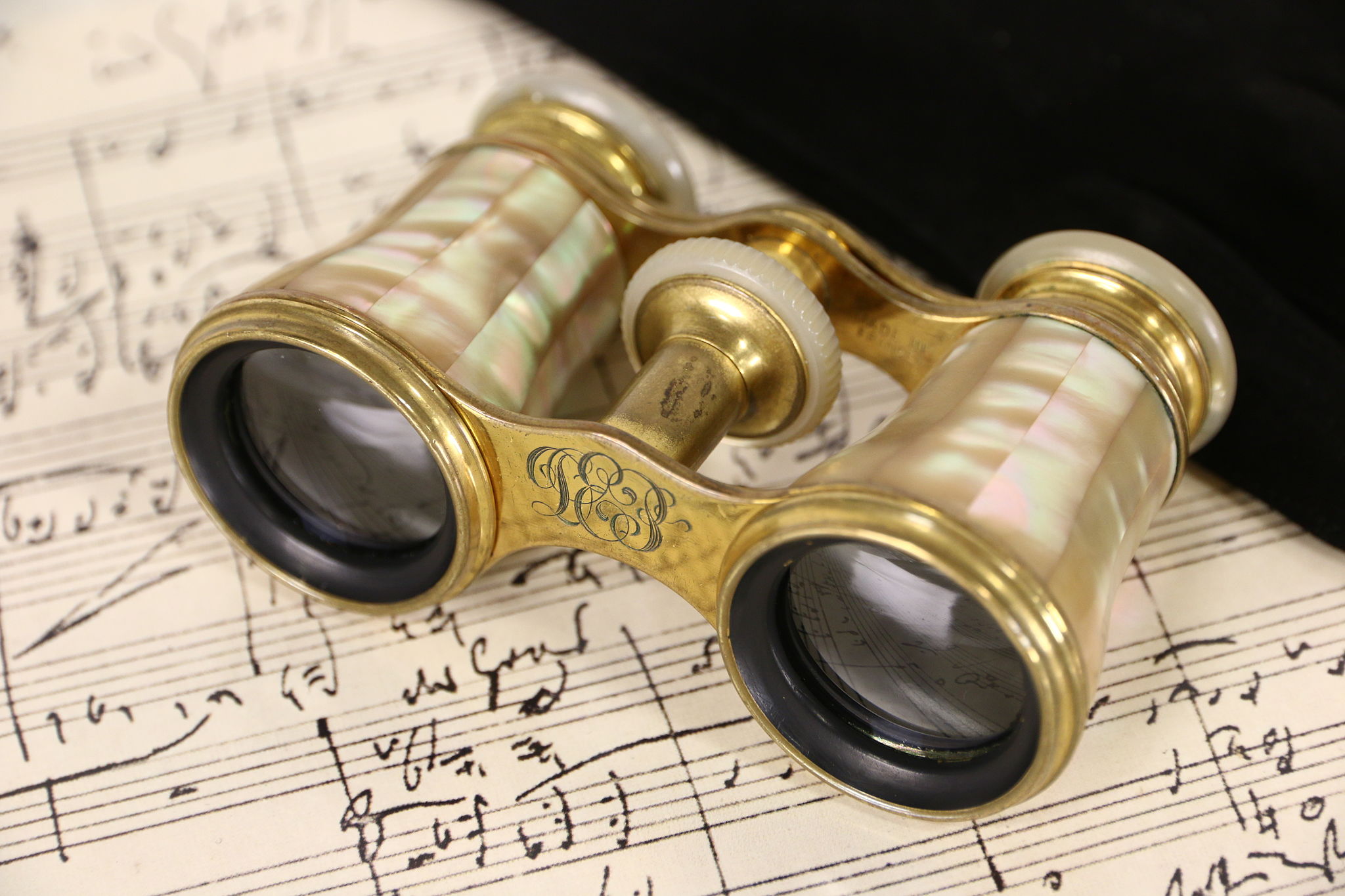Home>Events & Info>Opera>What Is Verdi Opera
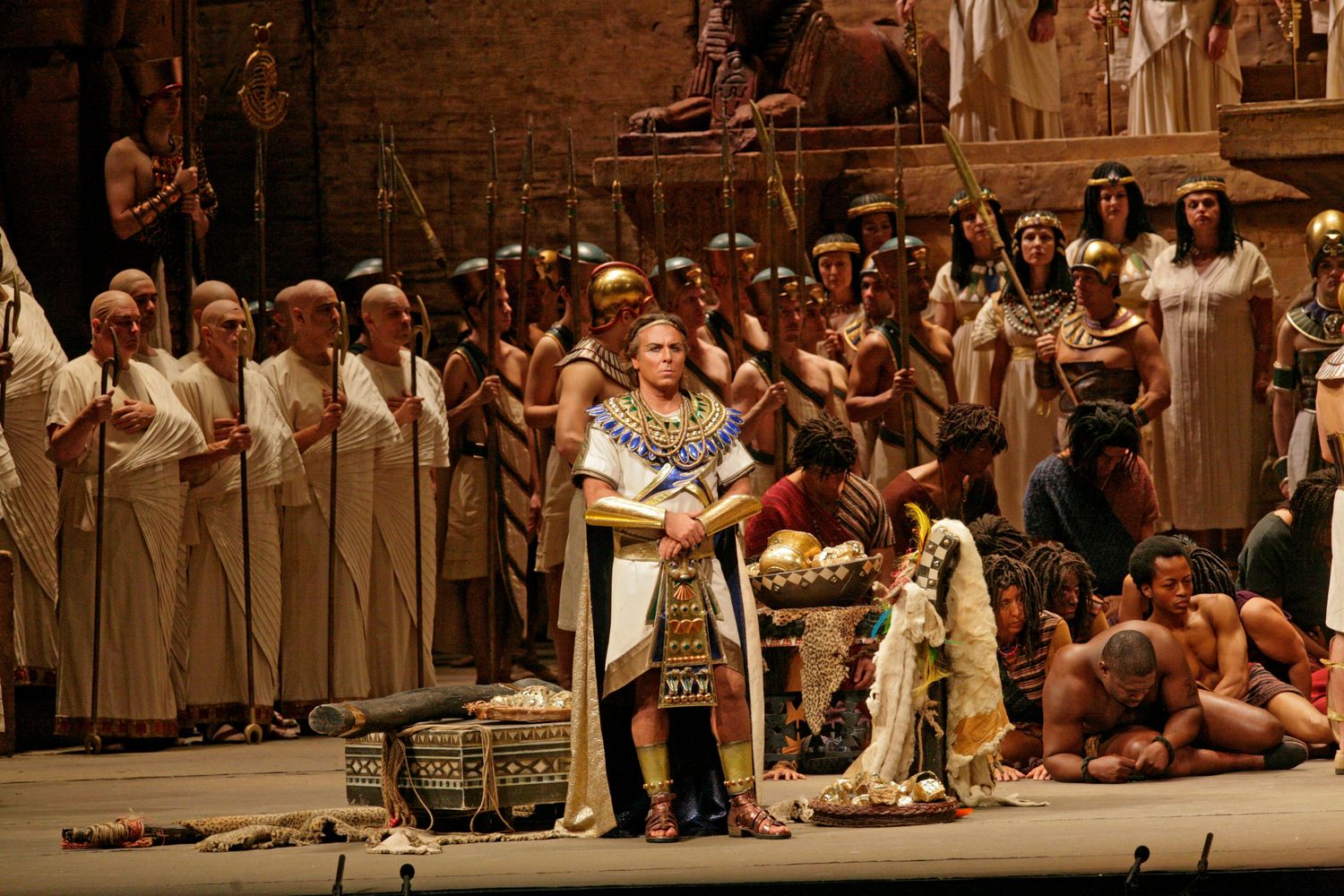

Opera
What Is Verdi Opera
Modified: January 22, 2024
Discover the beauty of Verdi Opera and immerse yourself in the captivating world of opera. Learn about the rich history, melodious compositions, and enchanting performances that define this timeless art form.
(Many of the links in this article redirect to a specific reviewed product. Your purchase of these products through affiliate links helps to generate commission for AudioLover.com, at no extra cost. Learn more)
Table of Contents
Introduction
Opera is a truly captivating art form that combines music, drama, and spectacle to create a mesmerizing experience for audiences. Within the world of opera, there are different styles and composers that have left an indelible mark on the genre. One of the most prominent figures in opera history is Giuseppe Verdi.
Born in Italy in 1813, Verdi became one of the most celebrated composers of his time, with his works continuing to be revered and performed to this day. His operas are known for their rich melodies, emotional depth, and powerful storytelling. Verdi’s contribution to the operatic repertoire is vast, and his influence on the development of the art form cannot be overstated.
In this article, we will delve into the world of Verdi opera, exploring its origins, key characteristics, and the enduring impact of Verdi’s works on the operatic genre. Whether you are a seasoned opera enthusiast or new to the world of classical music, this article aims to provide you with a comprehensive understanding of Verdi opera.
Giuseppe Verdi: A Brief Biography
Giuseppe Verdi was born on October 9, 1813, in Le Roncole, a small village in Northern Italy. He showed an early aptitude for music and began studying the organ at a young age. Verdi’s musical talents continued to develop, and he eventually gained admission to the Milan Conservatory, where he studied composition.
Verdi’s career as a composer began to gain momentum in the 1830s when he wrote his first opera, “Oberto.” However, it was his third opera, “Nabucco,” in 1842 that brought him widespread recognition and marked the beginning of his ascent to operatic greatness.
Throughout his life, Verdi wrote numerous operas that cemented his status as one of the most influential composers of his time. His works span a range of subjects, from historical dramas like “Aida” and “Don Carlos” to tragic love stories like “La Traviata” and “Rigoletto.”
Verdi’s compositions were not only musically brilliant but also politically charged, reflecting the turbulent times of 19th-century Italy. He became a symbol of Italian nationalism, and his music played a significant role in the country’s drive for independence and unification.
Despite encountering personal tragedies, including the deaths of his wife and children, Verdi’s passion for music remained unwavering. He continued to create masterpieces that pushed the boundaries of opera and captivated audiences worldwide. Verdi’s influence extended beyond his contemporary era, with his works being performed in opera houses around the globe and continuing to resonate with audiences to this day.
Giuseppe Verdi passed away on January 27, 1901, at the age of 87. His legacy as one of the greatest opera composers of all time endures, with his works continuing to be revered and celebrated by musicians, performers, and opera lovers worldwide.
The Origins of Verdi Opera
The origins of Verdi opera can be traced back to the rich tradition of Italian opera that predates Verdi’s own compositions. Italian opera had its beginnings in the late 16th century with the works of composers such as Claudio Monteverdi and Alessandro Scarlatti. However, it was during the 19th century, known as the “golden age” of opera, that Verdi emerged as a leading figure.
Verdi’s style of opera was heavily influenced by the Bel canto tradition, which emphasized beautiful melodies and vocal virtuosity. However, Verdi expanded upon these traditions, injecting his works with a sense of dramatic intensity, emotional depth, and social commentary that set them apart.
A defining characteristic of Verdi opera is his ability to create memorable and emotionally charged melodies. His gift for crafting melodic lines that resonate with audiences has made his operas perennial favorites. Whether in the soaring arias or the sweeping orchestral interludes, Verdi’s melodies have an enduring quality that transcends time.
In addition to his masterful melodies, Verdi was also a skilled orchestrator. He used the orchestra to heighten the emotional impact of his works, blending elements of drama, passion, and pathos through his choice of instruments and musical textures. His orchestration techniques brought a new level of expressiveness to his operas, creating a more immersive and powerful experience for the audience.
Verdi’s operas were also known for their strong characters and compelling narratives. He collaborated with some of the finest librettists of his time, such as Francesco Maria Piave and Arrigo Boito, to adapt well-known plays and novels into operatic form. Verdi’s ability to bring complex characters to life through his music, combined with his skillful storytelling, allowed audiences to connect with the human drama unfolding on stage.
Furthermore, Verdi’s works often reflected the political and social climate of his time. Living in an era of political upheaval and the struggle for Italian independence, Verdi’s operas became platforms for expressing nationalist sentiments and advocating for social justice. Works like “Rigoletto” and “La Traviata” tackled themes of power, corruption, and societal norms, challenging audiences to confront the issues of their time.
The unique blend of captivating melodies, emotional depth, rich orchestration, and socially relevant narratives set Verdi opera apart and established him as a revolutionary force in the operatic genre. His works continue to be celebrated and performed by opera companies and artists worldwide, ensuring that Verdi’s legacy remains alive and influential.
Key Characteristics of Verdi Opera
Verdi opera is characterized by several key elements that distinguish it from other operatic styles and make it a unique and captivating art form. Understanding these characteristics can deepen our appreciation for Verdi’s works and their enduring impact on the operatic genre.
One of the defining characteristics of Verdi opera is its intense emotional depth. Verdi had a profound understanding of human emotions and was able to convey a wide range of feelings through his music. Whether it is the heart-wrenching despair of Violetta in “La Traviata” or the fierce determination of the title character in “Macbeth,” Verdi’s operas pull at the heartstrings and elicit powerful emotional responses from audiences.
Another hallmark of Verdi opera is his gift for crafting memorable melodies. Verdi’s operas are filled with beautiful and poignant melodies that resonate long after the performance has ended. These melodies not only showcase the vocal abilities of the performers but also serve as a means of storytelling, conveying the thoughts, desires, and emotions of the characters.
Verdi’s use of the chorus is also a significant characteristic of his opera. Whether representing a crowd, a group of conspirators, or a chorus of monks, Verdi utilized the power of the chorus to create dramatic and atmospheric effects. The chorus adds depth and texture to the music, enhancing the overall impact of the opera and immersing the audience in the world of the story.
Additionally, Verdi’s operas often feature strong and complex characters. From the tormented Rigoletto to the ambitious Lady Macbeth, Verdi’s characters are multi-dimensional, with conflicting emotions and desires. Their inner struggles and personal journeys are brought to life through dynamic and challenging vocal writing, allowing the performers to delve deep into the psyche of their characters.
Verdi also employed a distinctive rhythmic and harmonic language in his operas. His use of driving rhythms and bold harmonies creates a sense of urgency and tension, heightening the dramatic impact of the story. This rhythmic and harmonic complexity, combined with Verdi’s masterful orchestrations, adds depth and excitement to his music, enhancing the overall theatrical experience.
Finally, Verdi’s operas often explore themes of social and political significance. Living in a time of political upheaval and social change, Verdi used his music as a means of commentary and critique. Through his operas, he addressed issues of power, corruption, societal norms, and the struggle for freedom and justice. Verdi’s operas were not just artistic productions, but also platforms for social and political discourse.
These key characteristics – intense emotional depth, memorable melodies, powerful choruses, complex characters, rhythmic and harmonic complexities, and social and political relevance – define Verdi opera and contribute to its lasting legacy in the world of music and theater. Verdi’s ability to combine these elements seamlessly has made his works an integral part of the operatic repertoire and ensured their continued popularity and admiration.
Verdi’s Most Famous Operas
Guiseppe Verdi was a prolific composer, creating numerous operas throughout his career. While all of his works have their own unique qualities, there are several operas that have become particularly renowned and are considered among Verdi’s greatest masterpieces.
One of Verdi’s most famous operas is “La Traviata.” Based on Alexandre Dumas’ novel “The Lady of the Camellias,” “La Traviata” tells the tragic story of the courtesan Violetta Valéry. With its poignant melodies, emotional depth, and powerful characters, “La Traviata” remains a beloved classic of the operatic repertoire.
“Rigoletto” is another iconic Verdi opera that has captivated audiences since its premiere in 1851. This tragic tale of a hunchbacked court jester and his daughter Gilda explores themes of love, betrayal, and revenge. The opera is characterized by its compelling characters, memorable melodies, and the famous aria “La donna è mobile.”
Verdi’s opera “Aida” is a grand masterpiece that transports the audience to ancient Egypt. Set against a backdrop of war and forbidden love, “Aida” features breathtaking music and extraordinary spectacle. The opera’s triumphant marches, soaring arias, and grand chorus numbers have made it a favorite among opera enthusiasts worldwide.
“Il Trovatore” is a dramatic and intense opera that showcases Verdi’s mastery of storytelling. With its tale of love, vengeance, and fate, “Il Trovatore” is filled with powerful emotions and unforgettable melodies, including the famous “Anvil Chorus” and “Di quella pira” aria.
Another notable opera in Verdi’s repertoire is “Nabucco,” which marked the composer’s breakthrough and firmly established his place in the operatic world. This dramatic work tells the biblical story of the Babylonian king Nebuchadnezzar and features the iconic chorus “Va, pensiero,” which became a symbol of Italian nationalism and is still treasured today.
Verdi’s “Otello” is a masterful adaptation of Shakespeare’s tragic play. This opera explores themes of jealousy, betrayal, and the destructive power of suspicion. With its complex and challenging vocal writing, “Otello” demands exceptional performances from its lead singers and continues to be hailed as one of Verdi’s greatest achievements.
Finally, “Macbeth” stands as a testament to Verdi’s innovative approach to opera. Based on Shakespeare’s play, this dark and atmospheric opera delves into the psychological depths of its characters. Through its intense music and gripping storyline, “Macbeth” remains a cornerstone of Verdi’s legacy.
These are just a few highlights among Verdi’s impressive body of work. From the timeless melodies of “La Traviata” to the grandeur of “Aida” and the dramatic intensity of “Rigoletto,” Verdi’s most famous operas continue to captivate audiences with their emotional depth, memorable music, and powerful storytelling.
Verdi’s Impact on the Operatic Genre
Guiseppe Verdi’s impact on the operatic genre is immeasurable. His works revolutionized opera, pushing the boundaries of the art form and leaving a lasting legacy that continues to shape contemporary opera productions. Verdi’s influence can be seen in various aspects of the genre, from musical style to storytelling techniques.
One of Verdi’s greatest contributions was his ability to infuse opera with intense emotional depth. His operas are renowned for their powerful and poignant melodies that evoke a wide range of emotions, capturing the essence of the characters and their experiences. Verdi’s emphasis on emotional expression paved the way for future composers to explore the complexity of human emotions through music.
Verdi also played a significant role in the development of the orchestra in opera. His orchestration techniques enhanced the dramatic impact of his works, creating a richer and more immersive musical experience. With Verdi’s innovative orchestrations, the orchestra became an integral part of the storytelling process, supporting and enhancing the narrative on stage.
In addition to his musical contributions, Verdi’s operas were often socially and politically charged. He used his works to address issues of power, corruption, and societal norms, making them a platform for social commentary. Verdi’s commitment to reflecting the political climate of his time and engaging with relevant social issues expanded the horizons of opera, transforming it into a medium for social and cultural discourse.
Verdi’s impact can also be seen in his approach to character development. His operas introduced complex and multi-dimensional characters, challenging the traditional portrayal of heroes and heroines in opera. Verdi’s characters are flawed, conflicted, and psychologically rich, offering performers and audiences a deeper exploration of human nature and the human condition.
Furthermore, Verdi’s influence extended to the realm of theatrical production. His operas demanded innovative and elaborate staging techniques to bring his vision to life. Verdi’s meticulous attention to detail in stage direction, costumes, and sets set new standards for opera production, inspiring generations of directors and designers to create visually stunning and conceptually meaningful productions.
Verdi’s impact on the operatic genre can still be felt today. His works continue to be performed and celebrated by opera companies worldwide. Many of his operas have become staples of the operatic repertoire, cherished by both performers and audiences alike. Verdi’s ability to seamlessly blend compelling storytelling, emotional depth, and musical brilliance paved the way for future composers to explore and experiment with the form.
As we continue to appreciate and enjoy Verdi’s operas, we are reminded of his immense contributions to the genre. Verdi’s impact on opera is not only witnessed through his own masterful compositions but also through the inspiration he provided to subsequent generations of composers, directors, and performers, ensuring that his profound influence on the operatic genre will endure for generations to come.
Conclusion
Guiseppe Verdi is undeniably one of the most influential composers in the history of opera. His works, characterized by their emotional depth, memorable melodies, and groundbreaking storytelling, have shaped the operatic genre and left an indelible mark on the world of classical music.
Verdi’s ability to evoke intense emotions through his music, his innovation in orchestration, and his dedication to addressing social and political issues within his operas have set him apart as a true visionary. His operas continue to be performed and enjoyed by audiences worldwide, captivating generations with their power, beauty, and timeless relevance.
Verdi’s impact extends beyond the realm of music. His operas challenged the conventions of the time, paving the way for future composers to explore new artistic possibilities. His complex and multidimensional characters offered performers and audiences a deeper understanding of human nature, while his attention to theatrical production elevated opera as a total artistic experience.
Through his works such as “La Traviata,” “Rigoletto,” and “Aida,” Verdi proved that opera could be a vehicle for profound storytelling, social commentary, and emotional expression. He transformed the operatic genre into a medium that spoke directly to the hearts and minds of people, breaking down barriers and engaging audiences in a powerful and meaningful way.
In conclusion, the legacy of Giuseppe Verdi and his opera compositions is undeniable. From his melodic genius to his commitment to capturing the human experience, Verdi set the stage for the development and evolution of opera. His works serve as a testament to the power of music and storytelling, reminding us of the transformative and cathartic potential of the operatic art form.
As we continue to explore Verdi’s works and celebrate his contributions, it becomes evident that his impact on opera extends far beyond his own lifetime. Verdi’s legacy serves as an inspiration for composers, performers, and opera enthusiasts, reminding us of the profound beauty and emotional power that can be achieved through the marriage of music and drama.
Giuseppe Verdi’s operas continue to captivate and enchant audiences, ensuring that his genius will be celebrated for generations to come. The enduring popularity and relevance of Verdi’s works are a testament to his unparalleled talent and his profound impact on the fabric of opera as an art form.

